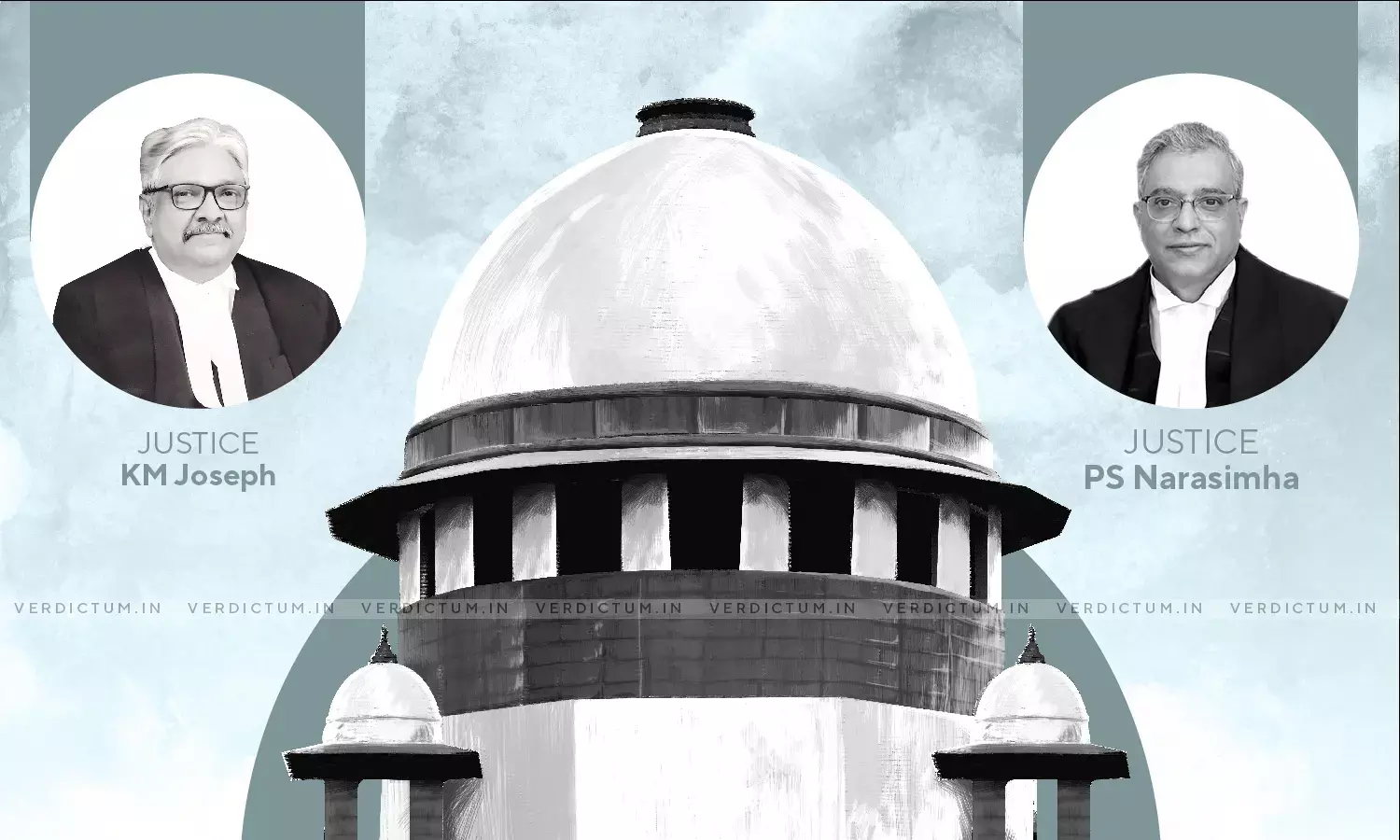Delhi School Ed. Act- Tribunal Has No Express Power U/s. 8 R/w. Section 11 To Order Back Wages- SC Affirms
Delhi School Ed. Act- Tribunal Has No Express Power U/s. 8 R/w. Section 11 To Order Back Wages - SC Affirms

A Supreme Court Bench of Justice KM Joseph and Justice Pamidighantam Sri Narasimha has held that as per Section 8 read with Section 11 of the Delhi School Education Act, the Tribunal so constituted under the Act does not have an express power to order back wages.
The Court thus observed -
"We would, therefore, conclude that we cannot but find that the respondent is right in contending that Section 8 read with Section 11 of the Act do not confer an express power with the Tribunal to order back wages."
Mr Anuj Agarwal appeared for the Appellant and Senior Counsel APS Ahluwalia appeared for the Respondent.
In this case, the Appellant was appointed as a Post Graduate Teacher by the School. The School is admittedly a minority institution.
As per the School, the Appellant had misbehaved with and molested a newly married employee in full public view. The tormented lady complained to the principal of the School, and as a result, the Appellant apologized profusely and tendered a voluntary resignation. The principal forwarded the letter to the Chairperson of the Managing Committee and the same was accepted. Thus ceased the employer-employee relationship between the School and the Appellant.
However, the School's version was disputed by the Appellant. He claimed that the resignation was a result of coercion and that the letter was withdrawn the next day, before it could be acted upon. He also questioned the competence of the Chairperson of the Managing Committee to accept the letter.
The Appeal was filed before the Delhi School Education Tribunal. Unfortunately, the Appeal came to be decided 17 years of it being filed. The Tribunal held that the letter of resignation was withdrawn before it was accepted and thus could not be acted upon. The Tribunal also held that the Chairperson of the Managing Committee was not the Competent Authority to accept the resignation. The Tribunal declared the termination of the Appellant's service to be illegal and directed that he must be reinstated in service with 50% back wages to be paid.
Before the High Court, the School contended that the Tribunal did not have the power to decide on the issue of back wages. The School argued that Rule 121 of the Delhi School Education Rules, 1973 - which provides the right to take the decision regarding back wages to the Managing Committee - would apply, and the same was held by the High Court.
The judgment of the High Court was challenged before the Supreme Court.
The Supreme Court opined that the powers under Section 107 of the CPC can only be understood to mean that there is also a power to remand the case or to grant other relief, which may not result in the final disposal of the case.
In that context, it further opined that these powers cannot be understood as meaning that the Appellate Court has the express power to grant the relief of back-wages or to decide upon the question as to whether the period of absence should be treated as duty, and that such power is coupled with a duty which is squarely vested with the Management.
Further, opining about the express powers of a Statutory Tribunal, the Court held that Section 8 read with Section 11 of the Delhi School Education Act, 1973 does not confer an express power with the Tribunal to order back wages.
Furthermore, after perusing and interpreting the relevant provisions, the Court opined that it may not be appropriate or apposite to find that Rule 121 is in any manner ultra vires Sections 8 and 11 of the Act, as the order of the appellate authority in an appeal directing reinstatement may not be final as it can be impugned in the higher forum.
Therefore, the Supreme Court found no merit in the Appeal and dismissed it with no order as to costs.
Cause Title - Sunil Sikri v. Guru Harkrishan Public School & Anr.

